Every evening at the Polynesian Cultural Center, guests gather at Hale Aloha or Hale ʻOhana for the award-winning Aliʻi Lūʻau. While the delicious flavors and graceful hula performances take center stage, what many visitors don’t see is the incredible amount of preparation, planning, and cultural care that goes into every detail of this authentic Hawaiian feast.
In this behind-the-scenes look at our luau preparation, we share how staff, student employees, and cultural specialists of the Center work together to honor tradition and create an unforgettable experience for each guest.
We Start with the Imu

The imu (underground oven) is at the heart of any authentic Hawaiian lūʻau. Preparing our imu begins before sunrise, with the Center’s culinary and cultural teams digging the pit, heating stones over a fire, and carefully placing the kālua pig inside. The pig is seasoned, wrapped in banana and ti leaves, and covered with burlap sacks and soil to trap the heat. It slow-cooks for hours, absorbing a rich, smoky flavor.
Throughout the day, the imu area is monitored and maintained. Guests can learn about the cultural significance of imu cooking during their village tours and presentations.
Local Ingredients, Cultural Respect
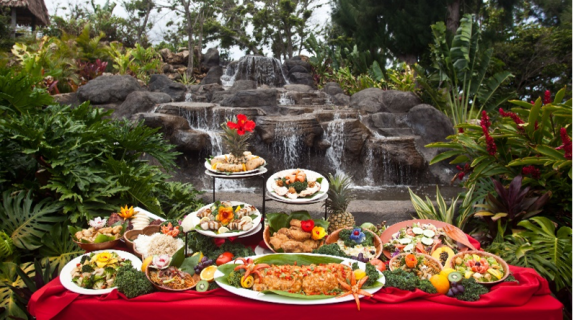
The feast prepared for the Ali’i Lūʻau is based off of traditional dishes and features fresh island ingredients.
The Center is proud of it’s dedication to farm to table dining. The food served at the Aliʻi Lūʻau is sourced as locally as possible, some staples even coming from the Center’s own gardens. The poi is made fresh from kalo (taro), a sacred staple crop in Hawaiian culture. Fresh pineapple, sweet potatoes, and tropical fruits are harvested regularly to ensure seasonal variety and freshness.
The kitchen staff of the Center, many of whom are students at BYU–Hawaiʻi, work in tandem with cultural specialists to ensure that every dish served not only tastes great but also reflects its cultural roots. This includes respecting traditional preparations and ensuring authentic presentation of each dish.
Setting the Scene at Hale Aloha and Hale ʻOhana
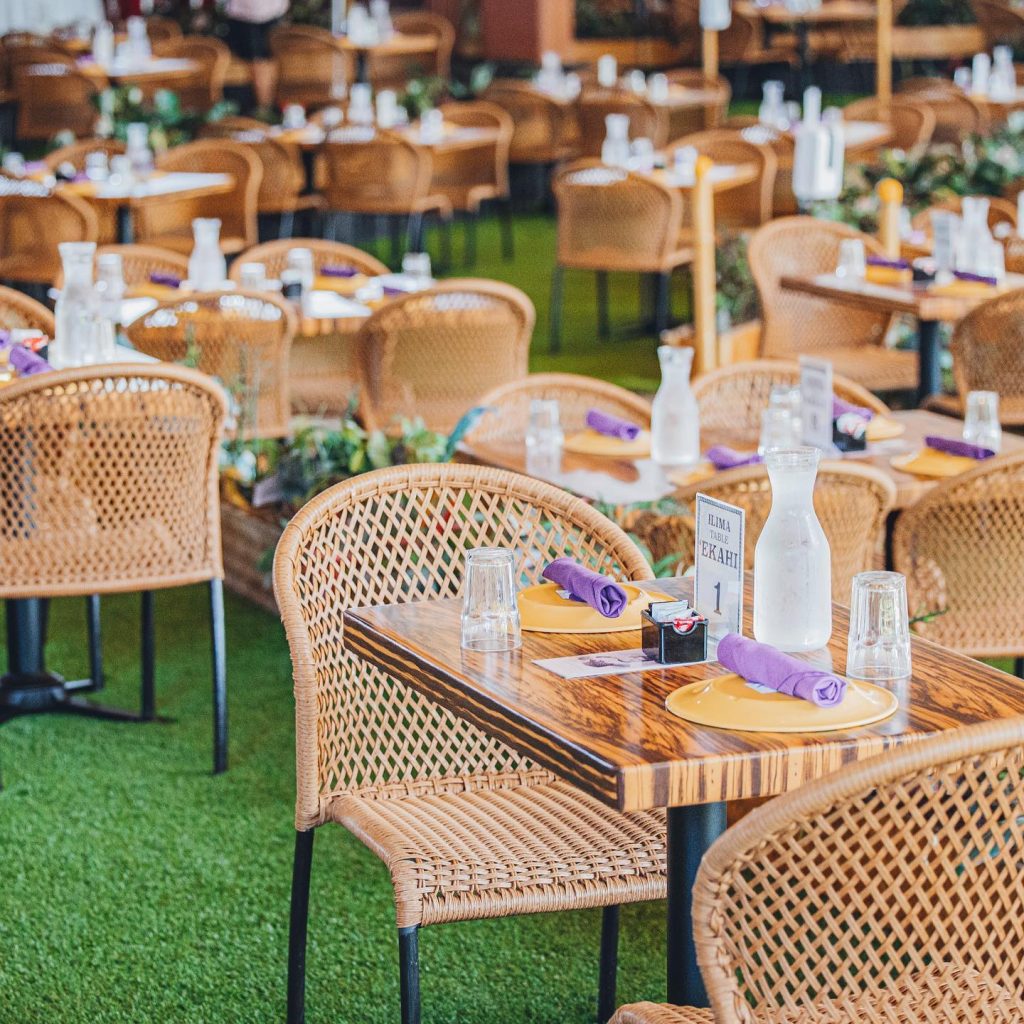
Our lu’au provides individualized seating to our guests for small, medium and large groups.
By midday, the team at Hale Aloha is already transforming the open-air venue into a welcoming space. Tables are dressed with tropical centerpieces, sound checks are conducted, and lighting is adjusted to capture the golden hour. Every lei, plate, and utensil is placed with intention.
The atmosphere is important, not only for comfort but also for storytelling. From the woven mat decor to the live Hawaiian music that greets guests as they arrive, each element works in harmony to create an immersive environment.
Training and Cultural Knowledge
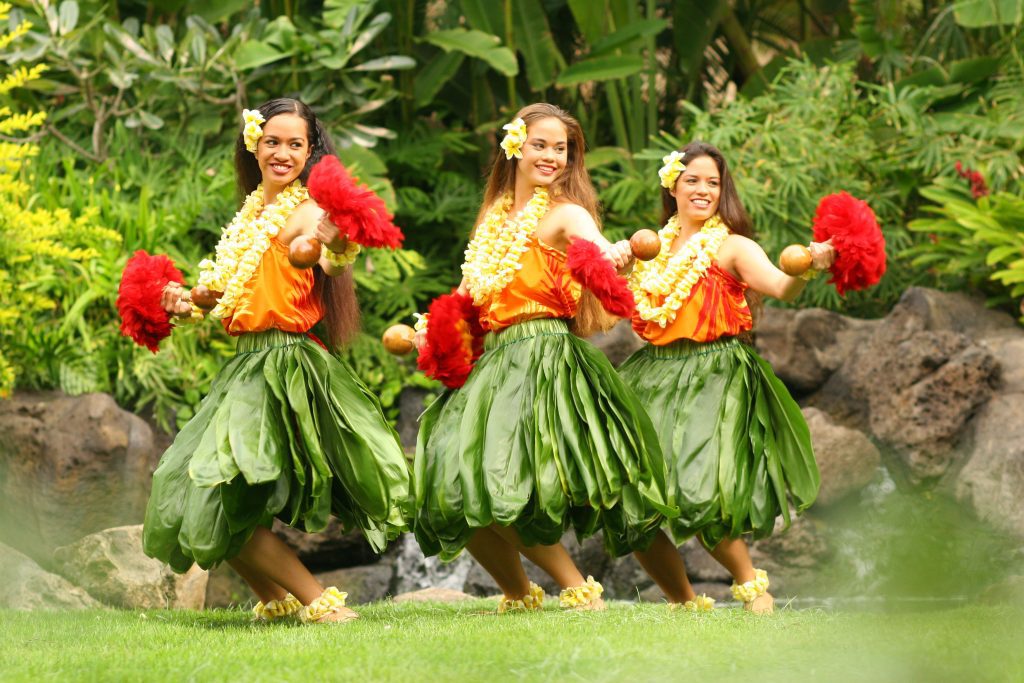
The beautiful ‘Auana style of hula is a joyous presentation generally accompanied by musical instruments, such as the ukulele or guitar
Behind each dancer, musician, and presenter is hours of training and cultural mentorship. The Aliʻi Lūʻau features a predominantly Hawaiian cast, including some local young keiki, performing traditional Hawaiian songs and hula. They train regularly in hula, chant, music, and oral storytelling. Their work is guided by kumu (teachers) and cultural experts who ensure accuracy and integrity.
These performers are not just entertainers, they are cultural ambassadors. Through their performances, they share personal and ancestral stories that connect guests to the heart of Hawaiʻi.
Coordinating the Experience
An evening lūʻau at the Polynesian Cultural Center involves coordination between more than a dozen departments, including culinary services, guest services, performers, cultural specialists, and operations staff. There are sound technicians, lei greeters, and photographers who all play a role in shaping the guest journey throughout the full-day experience.
Each team operates on a shared schedule to ensure seamless transitions from check-in to seating, dinner, and eventually the evening show, Hā: Breath of Life at the Pacific Theater. Communication and timing are key especially when welcoming hundreds of guests at once.
Educational Storytelling Throughout
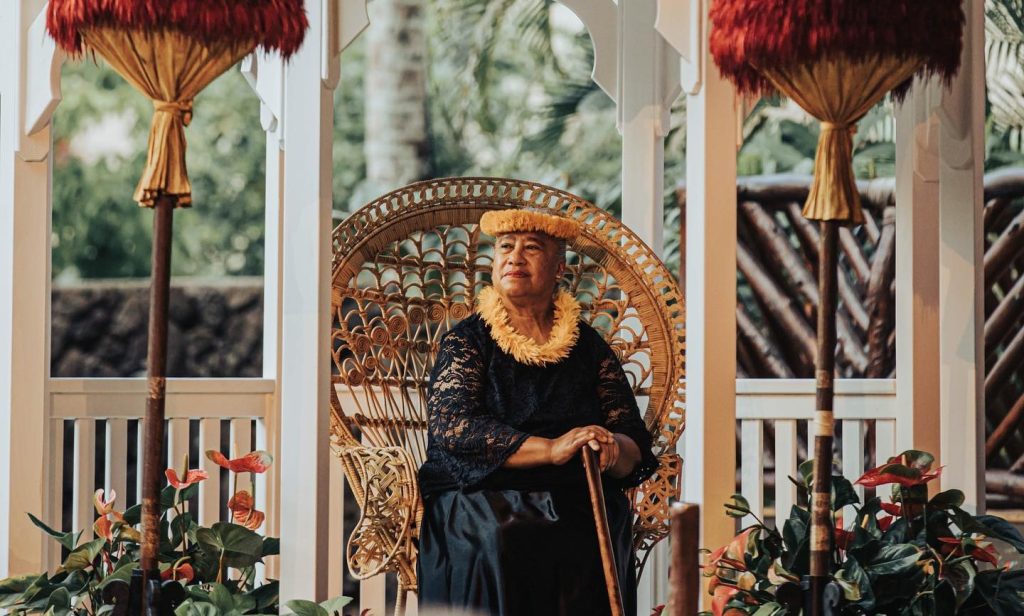
What sets the Aliʻi Lūʻau apart is its intentional focus on presenting a cultural tribute. The lūʻau honors Hawaiʻi’s last ruling monarch and only sovereign queen, Lydia Liliʻu Loloku Wewehi Kamakaʻeha, or Queen Liliʻuokalani. ʻOnipaʻa, which means steadfast, was the motto of Queen Liliʻuokalani and is integrally woven through every experience of the performance.
Children and adults alike leave with more than just memories. They leave with knowledge about Hawaiian values, like aloha (love), ʻohana (family), and mālama (care for the land).
More Than a Meal
When you attend a lūʻau at the Polynesian Cultural Center, you’re not just getting dinner and a show. You’re stepping into a living tradition, shaped by centuries of heritage and nurtured by the next generation of cultural caretakers.
This deep commitment to authenticity and education is what makes the experience at the Center so distinct. It’s why visitors return year after year and why locals are proud to share it with friends and family.
FAQ: Behind the Scenes of the Lūʻau
Q: Can guests see the imu preparation? A: While Guests cannot see the preparation of the imu cooking their luau feast for the evening, they can learn about the imu ceremony and traditional Hawaiian cooking during their experience at the Center.
Q: Who cooks the food for the lūʻau? A: A dedicated team of chefs and student workers under cultural supervision prepare all dishes.
Q: Are the performers professionals? A: The performers are professionally trained and mentored by cultural experts, including many local Hawaiian performers.
Q: Is this lūʻau suitable for children? A: Absolutely. The educational performances and self-serve dining are ideal for families with keiki (children).
Q: How is this different from other lūʻaus on Oʻahu? A: The Polynesian Cultural Center’s Aliʻi Lūʻau is deeply rooted in cultural accuracy and is part of a full-day experience that includes immersive village tours and a Broadway-caliber evening show.

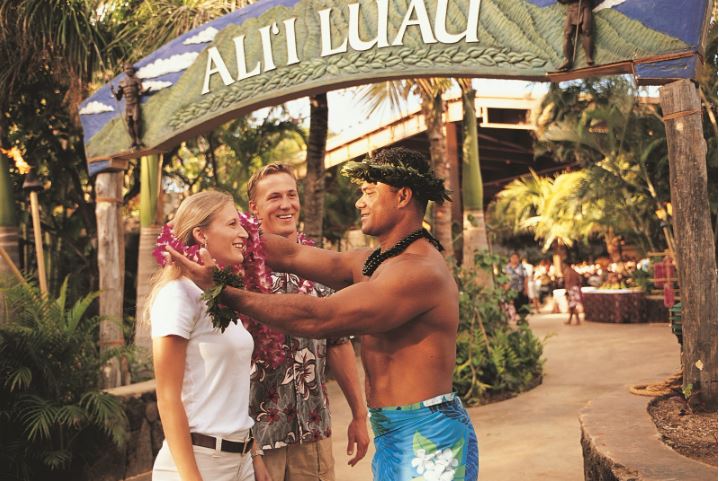
Recent Comments